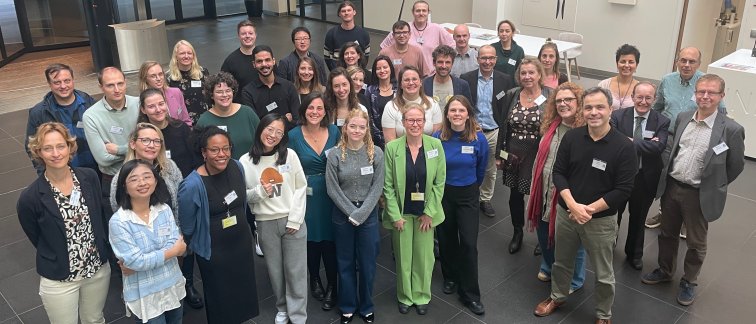Spatially Decoding Lung Cancer
SPACETIME aims to uncover how tumors interact with their surrounding immune and supportive cells. These complex and dynamic interactions are key to whether treatments (such as immunotherapy) will be effective. To grasp these complex relationships, the project will use advanced spatial technologies to study the location of cells, protein, lipids, metabolites and sugars within the tumor.
The kickoff meeting for SPACETIME marked the first time all consortium partners came together in person to foster collaboration. With three scientific keynote lectures, presentations of the work packages to outline the project's direction in the coming months, and a General Assembly meeting, this first consortium gathering will ensure collaboration and alignment among partners as SPACETIME moves forward.
EU collaboration beyond SPACETIME
During the kickoff meeting, the EU Project Officer attended online to discuss how SPACETIME fits into a larger network of cancer research initiatives. The project is aligned with the EU Mission on Cancer, which comprises approximately 50 European projects grouped into eight clusters.
SPACETIME specifically contributes to the “Understanding tumor-host interactions” cluster, which aims to foster collaboration with other EU-funded initiatives. This collaboration is vital for identifying synergies and sharing best practices across different areas of cancer research.
A Collaborative Path Forward
The kickoff meeting clarified partner roles, highlighted work package interdependencies, and outlined plans for the year. SPACETIME, with its international collaboration and innovative approach, aims to be a landmark in lung cancer research. Its findings will help identify biomarkers—biological indicators that can predict whether a specific treatment, such as immunotherapy, will be effective for a given patient. This would be a significant step forward in “precision medicine”, where immunotherapies are tailored to the individual characteristics of each tumor, ultimately improving patient outcomes and reducing the burden of ineffective therapies.
Article in Janus: SPACETIME - Amsterdam UMC Janus

